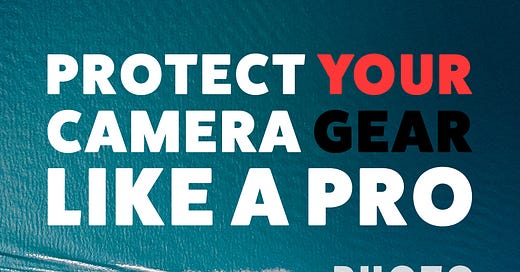Camera Gear Storage Tips: Protect Your Equipment Like a Pro
Excited about your new camera and lens?
It's important to know how to store them properly when not in use to keep them in top shape.
Here are some simple tips to help you protect your gear like a pro:
Choose the Right Storage
When it comes to storing your camera and lenses, protection is key.
Consider using a sturdy case to shield your equipment from dust, scratches, and bumps.
A soft case with a plush interior inside a hard case can provide extra security.
Using a hard case for your camera gear offers several benefits that can help protect your equipment:
Durability
Hard shell cases, like the Pelican 1560 Case or Pelican Air 1525 Case with TrekPak Padded Dividers, are incredibly durable and can withstand bumps, bruises, and harsh outdoor environments better than soft bags or backpacks.
This durability is key for photographers who need to take their gear into rugged locations.
Protection
Hard cases provide superior protection for your camera and lenses compared to soft bags.
They offer a higher level of defense against damage from impacts, weather elements, and rough handling during travel.
This protection is key for safeguarding your valuable equipment from potential harm.
Versatility
Hard shell cases, such as the Pelican BX140 Cargo Case, offer versatility by accommodating different types of photography gear.
They can hold cameras, lenses, drones, clothing, tools, and even food for longer adventures.
This versatility makes hard cases a practical choice for photographers with varying equipment needs.
Some of the other best brands for hard cases for camera gear include:
Manfrotto: The Manfrotto Pro Light Reloader Tough 47 Hard Case with Foam Insert is a popular choice among photographers for its design, security features, and transportation convenience.
SKB: SKB offers hard cases like the SKB 3i-13096PC4K iSeries, known for their quality construction and protection capabilities for camera gear.
Keep Moisture at Bay
Moisture can be harmful to your gear, causing issues like mold and fungus.
If you can't use a dry cabinet, try using silica gel packets in your storage case to absorb moisture.
Check the humidity level regularly and replace the silica gel as needed.
Prevent Humidity Damage
Avoid storing your camera in places that trap moisture, like leather cases.
Opt for dry, airtight storage spaces instead.
Simple DIY tricks like storing lenses facing down and using protective wraps can add an extra layer of defense.
Conclusion
Proper storage is essential for maintaining the longevity and performance of your camera and lenses.
Take care of your equipment, and it will continue to capture memories for years to come!
I hope that helps,
Hakan.




